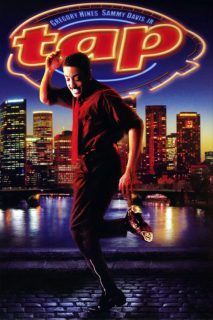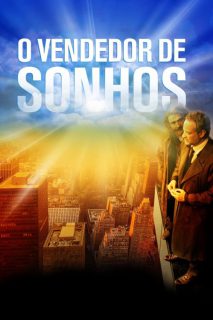
- Year: 2006
- Released: 29 Sep 2006
- Country: Romania
- Adwords: 12 wins & 13 nominations
- IMDb: https://www.imdb.com/title/tt0809407/
- Rotten Tomatoes: https://www.rottentomatoes.com/m/1208_east_of_bucharest
- Metacritics:
- Available in: 720p, 1080p,
- Language: Romanian
- MPA Rating: Unrated
- Genre: Comedy, Drama
- Runtime: 89 min
- Writer: Corneliu Porumboiu
- Director: Corneliu Porumboiu
- Cast: Mircea Andreescu, Teodor Corban, Ion Sapdaru
- Keywords: romanian new wave,
 | 7.3/10 |
 | 77/100 |
 | 96% – Critics |
 | 74% – Audience |
12:08 East of Bucharest Storyline
It’s the 22nd of December. Sixteen years have passed since the revolution, and in a small town Christmas is about to come. Piscoci, an old retired man is preparing for another Christmas alone. Manescu, the history teacher, tries to keep up with his debts. Jderescu, the owner of a local television post, seems not to be so interested in the upcoming holidays. For him, the time to face history has come. Along with Manescu and Piscoci, he is trying to answer for himself a question which for 16 years has not had an answer: “Was it or wasn’t it a revolution in their town?”—Alex
12:08 East of Bucharest Photos



12:08 East of Bucharest Torrents Download
| 720p | web | 785.48 MB | magnet:?xt=urn:btih:2FDAA4D559DAD1EFE336F0E6B131112355366C31 | |
| 1080p | web | 1.42 GB | magnet:?xt=urn:btih:D2BD338D53A2ED7E39F5AB3833B353F5E3CC6772 |
12:08 East of Bucharest Subtitles Download
| Arabic | subtitle A.Fost.Sau.N.A.Fost.FRENCH.DVDRiP.XViD-FRUTOS | |
| English | subtitle 12.08.East.Of.Bucharest.2006.PROPER.DVDRip.XviD-LAP |
12:08 East of Bucharest Movie Reviews
Before the Revolution?
December 22, 1989. What exactly happened that day in Bucharest? We know Romanian dictator Nicolae Ceausescu left the country bringing about the end of Communism, but, was there ever really a revolt?
This might be a touchy subject for a movie to some Romanians. I mean, after all, the movie is asking questions and challenging the country’s history. And there are people who are still alive who can tell us what happened. But, Corneliu Porumboiu’s feature lenght directorial debut shouldn’t cause any controversy.
“12:08 East of Bucharest” is many things. First of all it is one of the best Romanian movies I have ever seen. It is also one of the best films I’ve seen in 2006. It is one of the funniest movies I’ve seen this year and was the best movie I saw at the Chicago International Film Festival this year. But the one thing it is not is a controversial film.
What makes a film just as this so good is the way it weaves a serious subject with humor. Who would have thought a subject about the Romanian revolution could have been so funny? Romanians, and really most of us Eastern Europeans (I’m Hungarian) have a very sarcastic sense of humor. And that humor is shown in spades in this film. In fact the audience I saw this film with (and it was a packed house) were also in fits of laughter. I started laughing at myself for laughing. I was even trying to hold it in so I wouldn’t disturb the people sitting next to me.
The film mostly follows three men, Virgil Jderescu (Teodor Corban) the host of a TV show that is going to discuss the 16th anniversary of that fateful day and his two guest, both of whom claim to have been there, Mr. Manescu (Ion Sapdaru) and Mr. Piscoci (Mircea Andeescu).
The first half of the movie introduces these characters to us as each gets ready for the show. The second half of the movie is the TV show itself.
I’ve complained lately that one of the reason Romanian films don’t get distributed in America is because Romanians are going away from what they know. The country has tried so hard to maintain the image it is not behind with the times and wants to impress Western society. This is a big mistake. Don’t care what Western audiences will think. Just make films about your country and deal with subjects that are meaningful to you (by “you” I mean Romanian directors). Earlier this year we saw “The Death of Mr. Lazarescu”. There was a film that dealt with a “Romanian” problem and people all over the world not only enjoyed it, but, were able to relate to it. This, I believe, would happen more often if Romanian directors followed their hearts instead of some demographic.
“12:08 East of Bucharest” is dealing with a major part of Romanian history and the outcome is a brilliant film that all audience members should be able to relate to. The humor also helps the film by keeping the audience engaged.
I hope we see more films like this. And I also hope director Corneliu Porumboiu keeps making films and hopefully they will be shown in America.
p.s. I also wanted to quickly point out a similarity I found between this film and Bernardo Bertolucci’s “The Spider’s Stratagem”. Both films question a time in history. Are there such things as heroes? Does fact ever get mixed with fiction? How can we separate the two? When is a lie more important than the truth, if ever? These are important things to think about.
Here is political farce at its best
This film is set in a small Romanian city on December 22, 2005, the 16th anniversary of the downfall of the repressive communist regime of Nicolae Ceausescu, which technically occurred at 12:08, just after noon, on the same date in 1989. Virgil Jderescu (Teodor Corban), an entrepreneur who has prospered in the post-revolution free market era and now counts the local television channel among his assets, decides to devote his personal talk show today to commemorating the anniversary of the week-long revolution. His guests are an old, white maned and bearded, much beloved pensioner, Mr. Piscoci (Mircea Andreescu), known for his annual Santa Claus appearances over the years, and Professor Manescu (Ion Sapdaru), a seriously alcoholic local academic historian.
Virgil poses the question for discussion: did the people of this city participate actively in the revolution or not? The answer turns on whether locals were agitating against Ceausescu by demonstrating in the town square before the announcement of his downfall, or, instead, whether people merely came out of the woodwork afterward, when it was safe, to coattail on the revolutionary triumph courageously brought about by others, in Bucharest and elsewhere in the country.
The last hour of the film presents the talk show episode in real time, and it is as good as the very best of briefer political sketches in the salad years of Saturday Night Live. Virgil is the unctuous host, trying to satisfy his guests and the contentious viewers who phone in to criticize the discussants on live audio feed. Old Mr. Piscoci offhandedly, almost reluctantly, acknowledges that, yes, he was present on the scene in the square that morning, and no one challenges this. You get the sense that this fact, like everything in his life, is no big deal. In fact, he seems thoroughly bored with the proceedings and spends his time making paper boats and what look to me to be cootie catchers from notepaper on the table where the three principals sit.
Prof. Manescu on the other hand, nursing an especially foul hangover, asserts with all the pride he can muster under the circumstances that he certainly was present, calling for Ceausescu’s scalp, in the hours leading up to the moment of capitulation. A woman phones in to state point blank that Manescu’s lying, that she personally saw him drinking in a nearby tavern until well after the moment that C. stepped down. A male caller, whom Manescu had accused on the air by name of being a member of the Securitate – Ceausescu’s thug police – who hit him during a scuffle in the square, admits that while it’s true that he was a Securitate agent at that time, and that he was on duty in the square, because of those very facts he can vouch for the previous woman’s assertion that Manescu was nowhere to be seen until later in the day. Manescu responds by first defending himself, then trying to elope from the station during a commercial break. He’s brought back and spends the latter part of the show in a silent funk.
The TV station itself smacks of our familiar local cable access operations. A single staff person, an indifferent, skinny young man, runs the camera, mans the phones, helps Virgil chase after Manescu, and reaches his arm across the table at one point to sweep away Mr. Piscoci’s paper boats. The whole show is steeped in dark, understated humor, with, of course, serious subtexts about false claims of political glory and the larger issue of whether anything worthy of the term revolution really occurred in Romania, or at least in their town, i.e., whether most people in Romania are better off today or not.
I’d love to give the film an “A” grade, but it is compromised by a creaking, protracted, confusing beginning: the first half hour is devoted to scenes in which each of the three principals, in their apartments, is awakening for the day. These scenes are shadowy; it’s even hard to decipher who’s who for a while. However, these scenes do serve to establish the fact that life for the characters other than Virgil is not very good, perhaps little better than before the revolution, if that. This film won the Camera d’Or Award for best debut feature last year at Cannes. My grades: 8/10 (B+) (Seen on 01/31/07)
Wonderfully quirky East-European production
A wonderfully quirky movie, rooted in the deep inner conflict experienced by many people who have to re-conciliate their Communist-era mentalities with(in) a post-Communist society.
Most Romanians (and East-Europeans alike) will understand it very well, since many clichés are present here: the vain, non-professional media, the desolate streets, the people without perspectives or hope, the arrogant new-rich former secret service people, the successful immigrants coming from even lesser parts of the world… all grafted on top of a nagging general feeling of guilt and shame, emanating from the sheep-like population.
Let’s face it: the real (and only) Romanian heroes of 1989, “before 12:08 on December 22”, were the several thousands of mostly young folks who defied the authorities in the streets of Timisoara and Bucharest… the rest of the country just watched and waited, much like the viewers of Jderescu’s “talk show”.
PS. – To the pretentious prig from Denmark: I think you were supposed to post your “art cinema” commentary under the latest creation of your much-ballyhooed co-national, Lars von Trier, “Direktøren for det hele” (2006). Your comments fit that film to a “T”!!!
If you have absolutely no idea what Porumboiu’s minimalistic film is all about, and no respect or understanding for another culture, I think you should refrain from posting. Sadly, your inane text was at some point featured on the main page for this Romanian film, even though you – thankfully! – represent an insignificant minority of malcontents.



